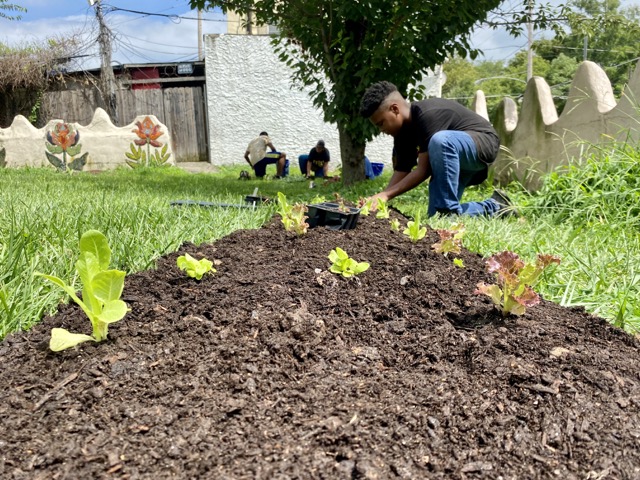
Many young people join Philly Earth, our environmental education, urban farming, and agricultural workforce development program, intending to spend time on a farm where they can plant, be in the dirt, pick fruits and vegetables, and enjoy time outdoors.
While that’s a significant part of the program, our teaching artists also want to ensure participants learn about environmental science and environmental justice, how climate change impacts our planet, and what we can do to make a difference.
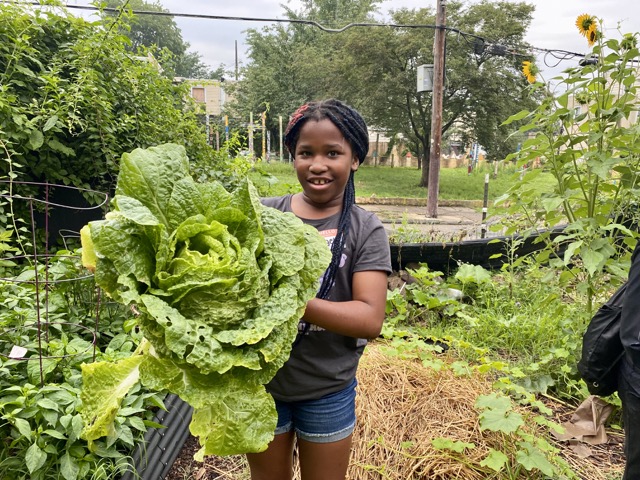
This summer, our young people got an introduction, and for some, a reintroduction, to regenerative agriculture as a way to replace conventional farming, one of the most harmful environmental practices of our time.
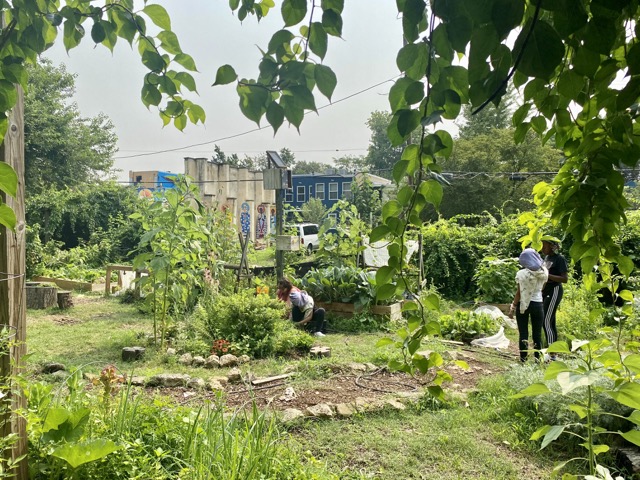
As Lu Thain, our Director of Environmental Programs, explains, “Regenerative agriculture is a return to natural and ancient growing practices as a response to modern, mass farming practices that are unsustainable and incredibly harmful to the environment.”
The goal is to work in harmony with nature rather than against it.
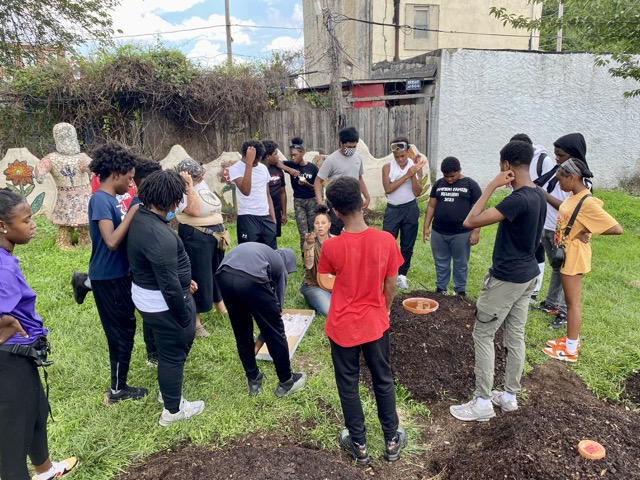
We dug deeper into the concept by having our young people watch, discuss, and analyze the classroom version of the documentary “Kiss the Ground.” This film and the related lessons help ensure that Philly Earth participants don’t only learn about the harms of conventional farming practices; we want to provide them with the information and tools they need to create more sustainable practices.
Thain sees this as a stepping stone for youth to understand climate change, along with concepts like biodiversity, soil health, and pesticides, and most importantly, that we can affect change in these areas that need our advocacy for the sake of our lives, the planet and the generations that come after us.
“It serves as a lightbulb moment for them to understand the importance of sourcing their food locally, not from chain supermarkets, and ideally, growing their food, if possible,” says Thain.
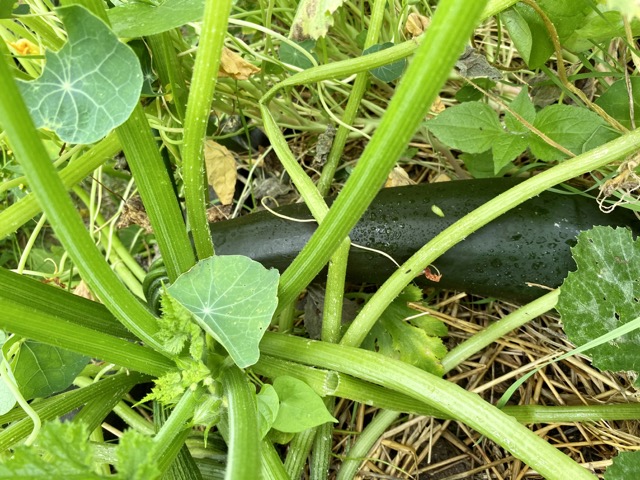
In order to make it more accessible for young people and their families to support regenerative agriculture, Thain advises replacing trips to the grocery store with farmers’ markets and local co-ops or looking for neighborhood-specific community gardens, which are growing in numbers all over the city and country as people realize fresh produce as a vital need.
“We can all support the fight against climate change by taking these small, impactful steps. It’s critical that we teach our youth that they can help to improve our planet’s future fate through the choices they make today,” says Thain.